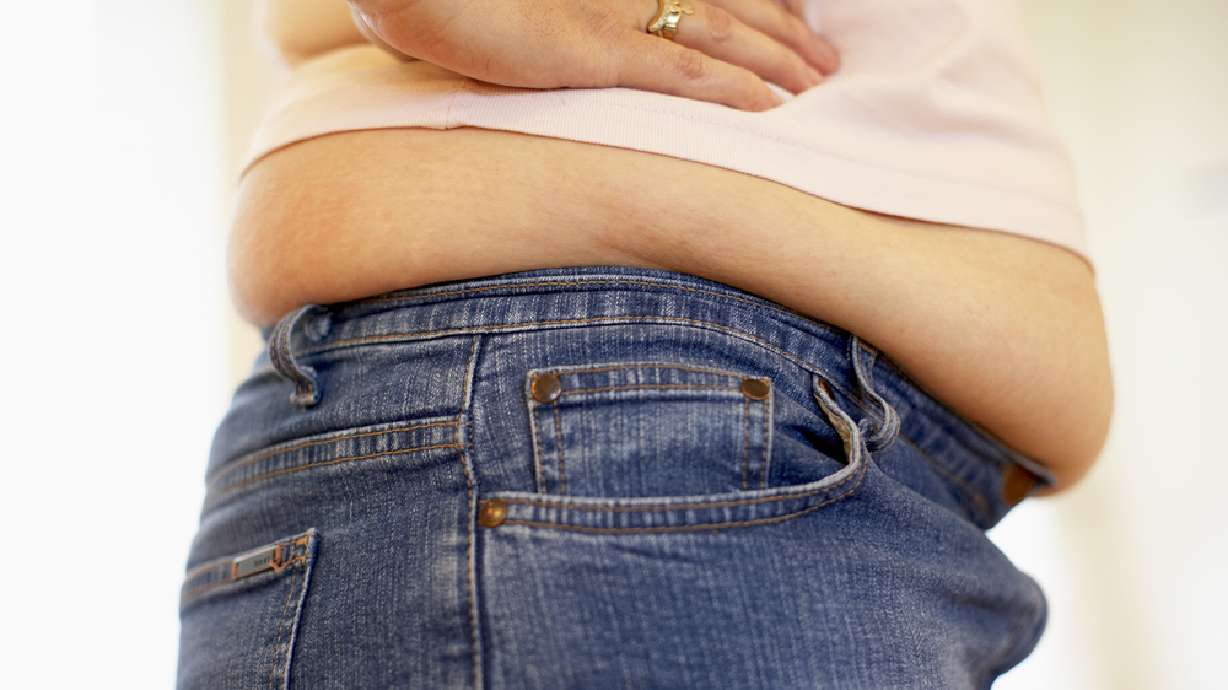Estimated read time: 4-5 minutes
This archived news story is available only for your personal, non-commercial use. Information in the story may be outdated or superseded by additional information. Reading or replaying the story in its archived form does not constitute a republication of the story.
SALT LAKE CITY (CNN) — The longer a woman is overweight or obese, the more her risk of cancer may increase along with the time.
A new longitudinal study on postmenopausal women, published in the journal PLOS Medicine on Tuesday, reveals that the duration of having a high body mass index is linked to a higher risk of developing several types of cancer, from breast to endometrial.
It's the first study to explore the relationship between overweight duration and cancer risk in a large cohort of women, said Melina Arnold, a scientist at the World Health Organization's International Agency for Research on Cancer and lead author of the study.
"Given the result from previous studies supporting the overall link between obesity and cancer, our results are in line with what we know about this relationship," Arnold said. "Yet it adds to current scientific evidence by suggesting that there seems to be a cumulative effect of obesity on cancer risk."
As weight goes up, so does cancer risk
The researchers analyzed data on 73,913 women across the United States using information from the long-term national health study Women's Health Initiative. They took a close look at the women's body mass index measurements, physical activity, diet, smoking, hormone use, and cancer and diabetes history.
Body mass index is often used as a screening tool for being overweight or obese, as a measurement of 25 to 30 falls within the overweight range and 30 or higher falls within the obese range, according to the Centers for Disease Control and Prevention.
The data used in the study spanned 12 years, during which about 6,301 obesity-related cancers were diagnosed among the women.
The researchers discovered that, for every 10 years the women were overweight during adulthood, their risk for all obesity-related cancers increased by 7 percent. Meanwhile, the risk for postmenopausal breast cancer went up by 5 percent, and the risk for endometrial cancer went up by 17 percent. Additionally, how much the women were overweight played a significant role in their cancer risk.
"This is biologically plausible, as earlier and longer periods of overweight and obesity have been found to increase the risk and severity of hypertension, insulin resistance, chronic inflammation, DNA damage and changes in hormone metabolism, which are all key mechanisms increasing also the risk of cancer," Arnold said.
She added that more research is needed to determine whether the findings are still applicable for women who may lose weight for a period of time and then gain it back.
"We also showed in our study that the risk to develop these cancers is not only dependent on overweight duration itself but also on the degree of overweight over time," Arnold said. "This is why it is difficult to make a general statement about how much overall cancer risk increases per year of overweight or obesity."
Hoda Anton-Culver, professor and chairwoman of epidemiology at the University of California, Irvine and a co-author of the study, said she and her colleagues plan to further explore this topic.
Related:
"In addition, other questions that we are thinking about include, 'Does the age at obesity onset matter? Particularly during childhood, as a young adult or older adult,' or 'Does lifelong normal weight actually reduce the risk to develop cancer?' and 'Does obesity influence survivorship after cancer diagnosis and treatment? " Anton-Culver said.
She pointed out how the study results could help health care providers and the public work together to control obesity and prevent cancer.
How to lower weight and cancer risk
Why is there a link between obesity and cancer? "Excess fat tissue causes an overproduction of several blood and tissue factors that can initiate or promote growth of tumors, such as estrogens, testosterone, inflammation, insulin, and factors that cause growth of blood vessels that can feed tumors," said Dr. Anne McTiernan, a cancer prevention researcher at the Fred Hutchinson Cancer Research Center in Seattle, who was not involved in the new study.
"Both men and women have increased risks for several cancers if they are overweight or obese," she added.
McTiernan served as senior author on a separate study, published in the journal Cancer Research last month, which showed that diet was more effective at lowering weight and cancer risk than exercise.
"We found that weight loss, as little as 5 percent to 10 percent loss of starting weight, significantly reduced blood levels of estrogens, testosterone, insulin, inflammation-related biomarkers and markers of angiogenesis," McTiernan said.
The study involved 439 overweight or obese postmenopausal women, who were asked to complete either a yearlong caloric restriction diet, a regular aerobic exercise plan or both the diet and exercise plans.
Women who followed the diet lost, on average, 8.5 percent of their starting weight after one year. Those who completed both the diet and exercise lost 10.8 percent of their starting weight. However, those who followed only the exercise plan lost a mere 2.4 percent of their starting weight.
"A third of United States adults are obese, and another third are overweight. So the condition of excess fat tissue affects the majority of persons," McTiernan said. "By studying whether and how overweight and obesity affect cancer risk, we hope to be able to design ways to prevent cancer."
The-CNN-Wire™ & © 2016 Cable News Network, Inc., a Time Warner Company. All rights reserved.










